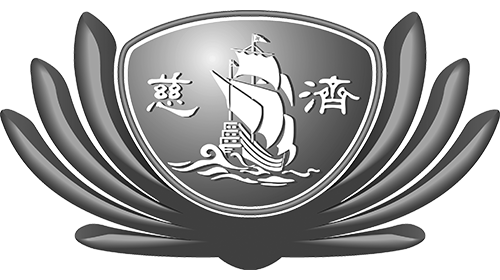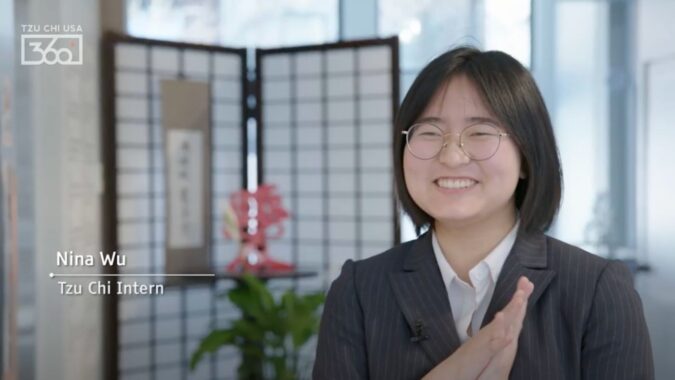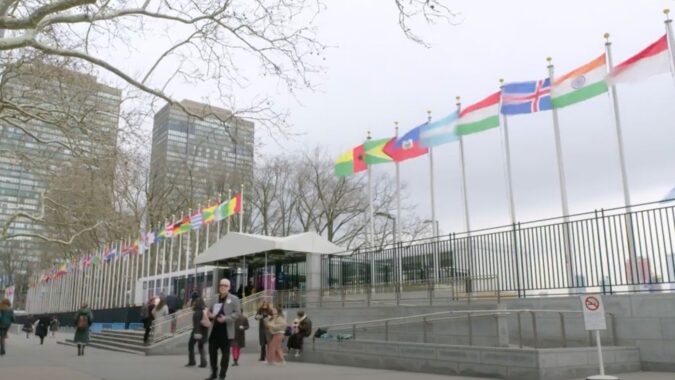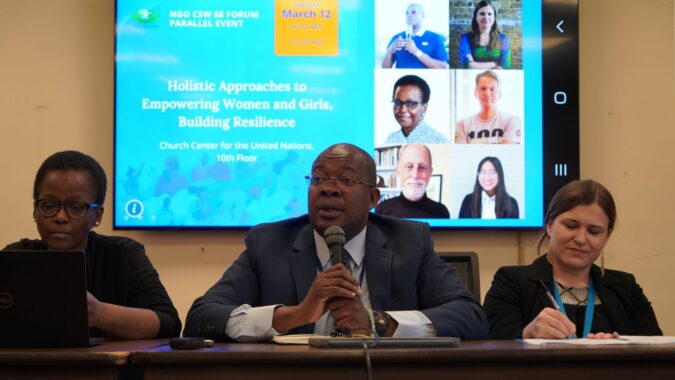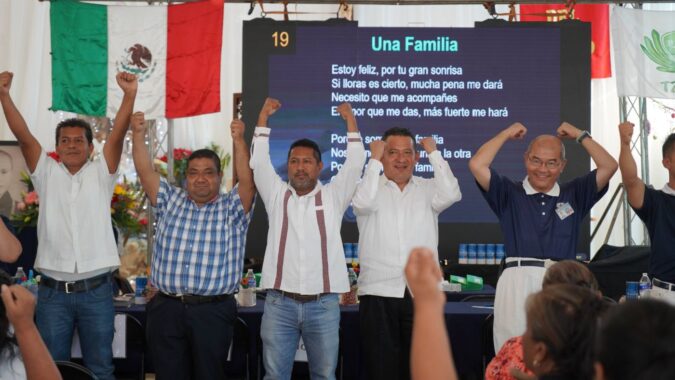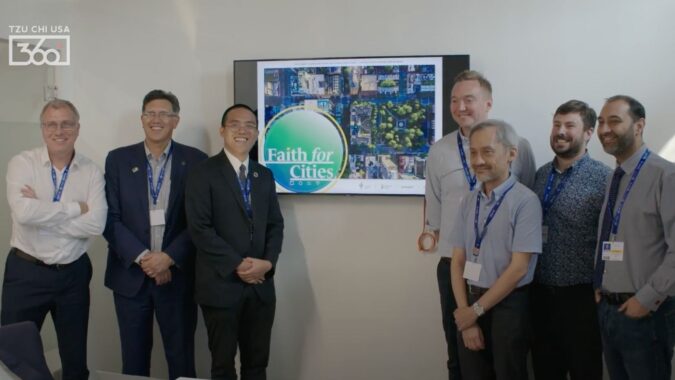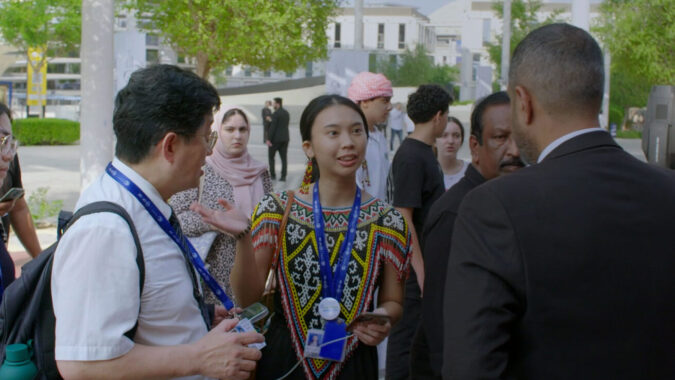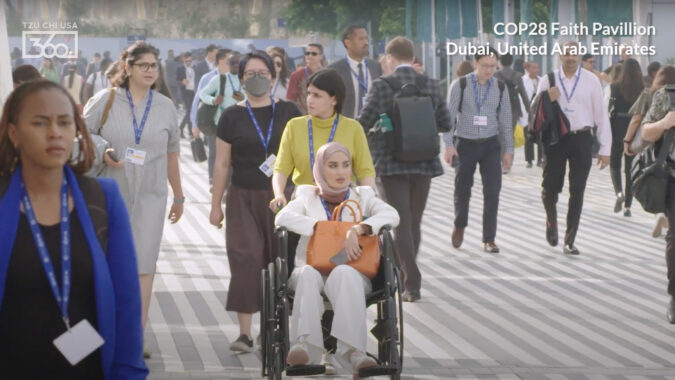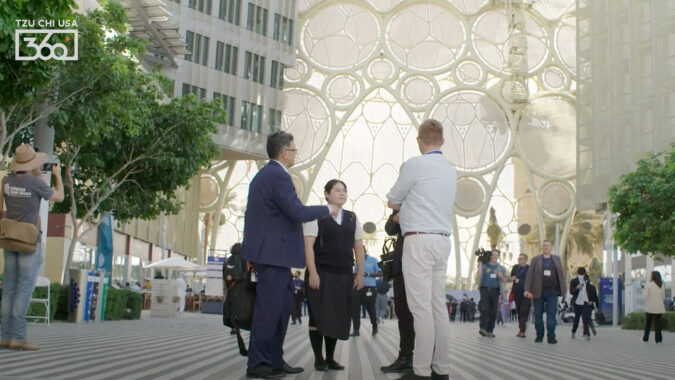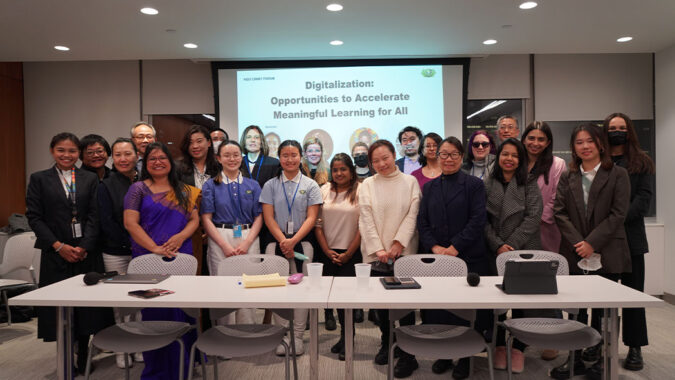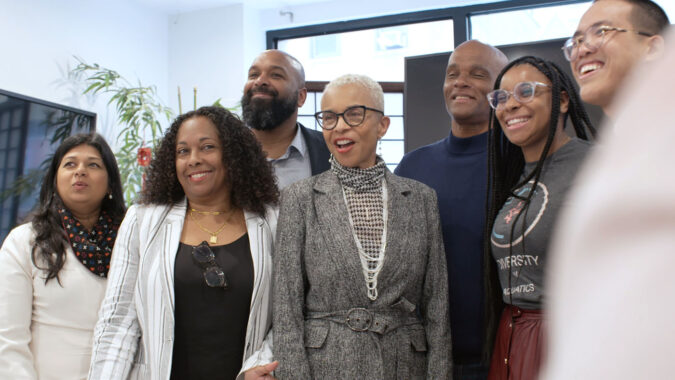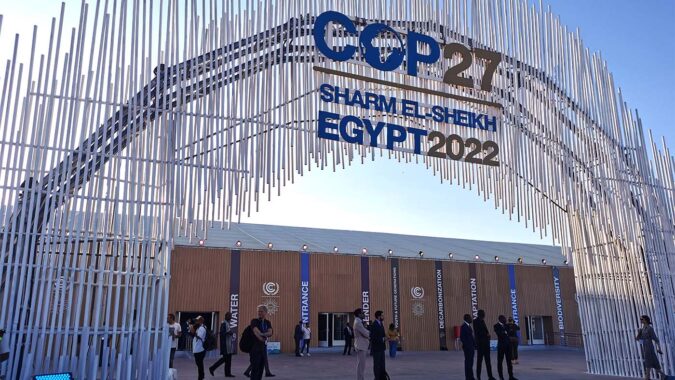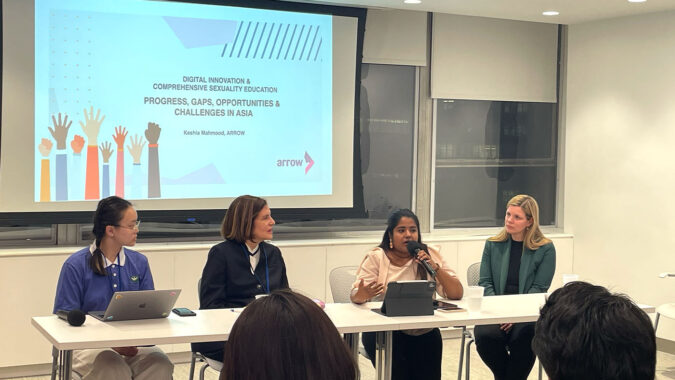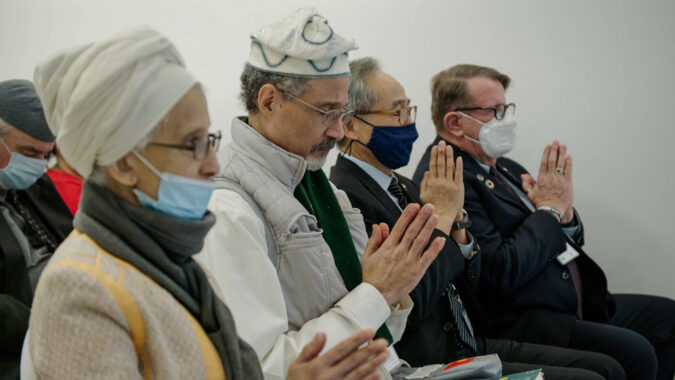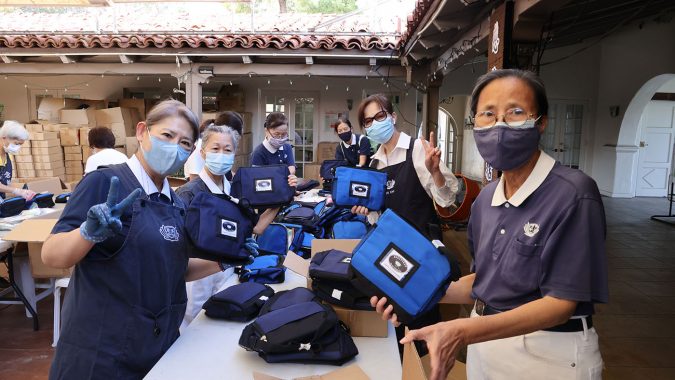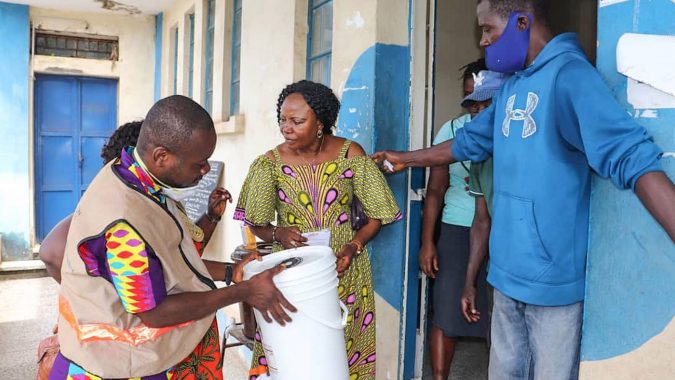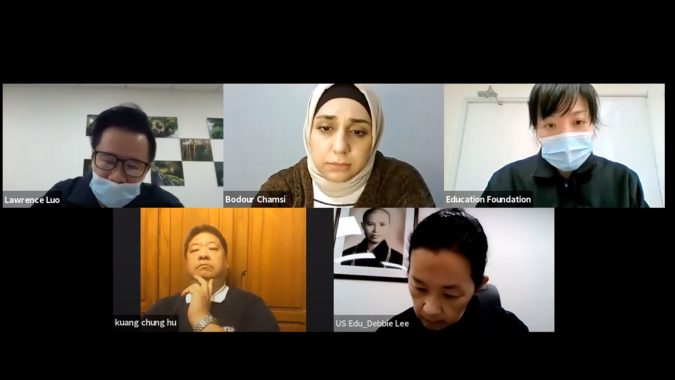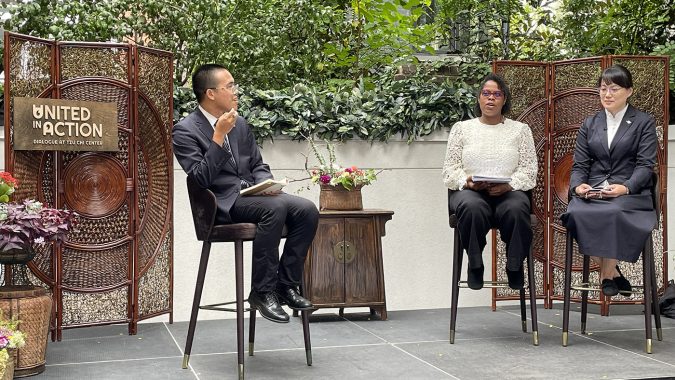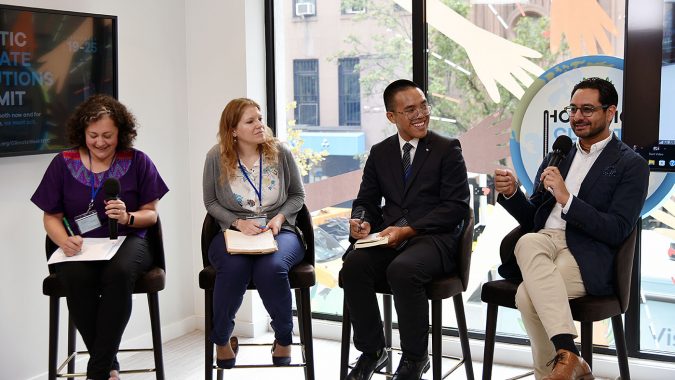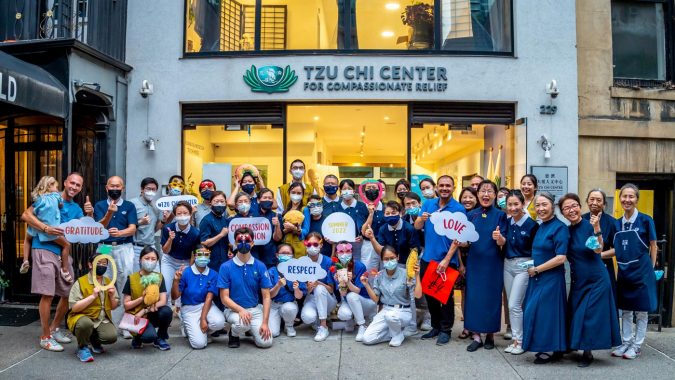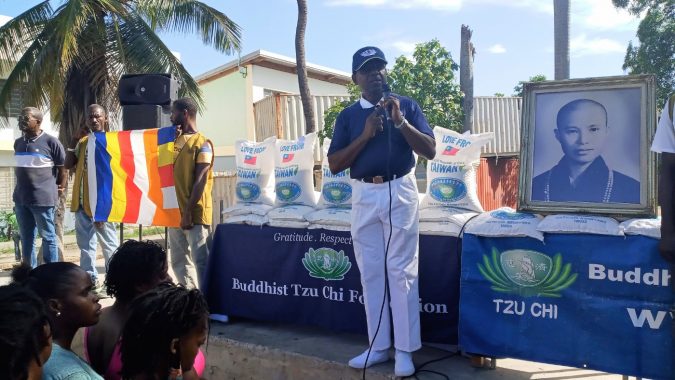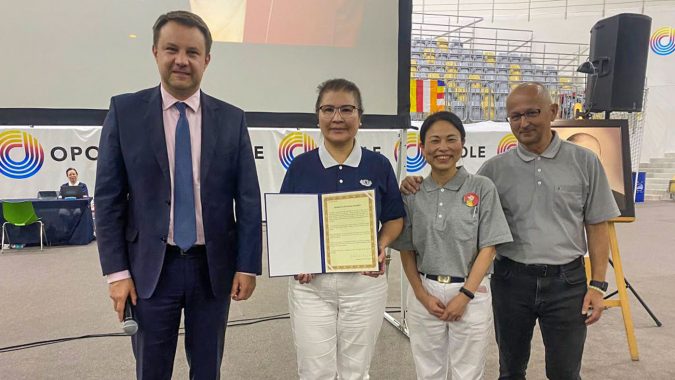
Written by Ariel Tsai and Andrew Larracuente
The 69th Commission on the Status of Women (CSW69) began on March 10, 2025. It took place at the United Nations Headquarters in New York. As an ECOSOC-accredited non-governmental organization (NGO), Tzu Chi was invited to participate in the session. As always, Tzu Chi’s delegation was excited to be part of the global conversation and advocate for gender equality as we work to empower communities worldwide.

This year, we were proud to have Southeast Asian delegates join us. They have been working on transformative projects in India and Nepal, empowering women’s economic power through vocational education. Additionally, our initiatives include alcohol-related interventions, especially among men, aimed at improving gender equality through holistic strategies.
On March 10, the first day of CSW69, Tzu Chi warmly welcomed representatives from faith-based organizations to the High-Level Multi-Faith Reception hosted by the MFAC Gender Working Group. This unique gathering provided a space for meaningful collaboration and solidarity in advancing gender equality and human rights. The reception’s warmth echoed the spirit of unity as the Tzu Chi family welcomed everyone home with open hearts. In a world where divisions can feel overwhelming, this gathering was a testament to the power of faith, compassion, and shared purpose in creating a more just and inclusive future.

On March 12, Tzu Chi was invited to participate in the CSW Artisan Fair at the Church Center UN, which focused on gender equality and human rights. Many attended, sharing an incredible experience where all involved could discover custom and handmade crafts from diverse cultures and traditions in many styles.

On March 13, Tzu Chi joined UNICEF USA and Zonta International for an essential discussion on Ending Violence Against Girls. Violence against girls remains a global crisis, including physical, sexual, and emotional abuse, which robs girls of their rights, health, and future. Ending this injustice requires collective action and unwavering commitment. Branda Ng, representing Tzu Chi as a panelist, shared a powerful reminder that achieving gender equality is still a long journey. “According to the 2024 Global Gender Gap Report, it will take 134 years for women to reach equality with men.” She also spoke about the role of faith-based organizations in addressing gender inequality, saying, “We must work together—faith communities, NGOs, and UN agencies—to build a more equal world.”

The Tzu Chi Center for Compassionate Relief hosted an event that proved to be both powerful and transformative, titled “Women of Faith Leading Change: Going Further, Faster, Together for Climate and Gender Justice.” On March 13, global leaders from the Women, Faith, and Climate Network (WFC) gathered with a shared purpose: to amplify the efforts of women in tackling climate change and advocating for gender justice. The discussion took place in a time of urgent climate need, where women and girls remain disproportionately affected by climate disasters. Women are up to 14 times more likely to die in such situations than men, a grim statistic underscoring the deep intersectionality between gender inequality and environmental injustice.

The following day, on March 14, the Tzu Chi Boston-Cambridge Outreach Center hosted a discussion titled “Exploring Values and Actions to Achieve Gender Equality.” This event focused on actionable steps to empower women in marginalized communities, particularly in Bodhgaya, India. Speakers Sio Kee Hong and Cecelia Ong, two dedicated volunteers of Tzu Chi, shared their experiences and insights on how Tzu Chi’s initiatives were fostering gender equality through compassion and sustainable development. Sio’s presentation particularly focused on the empowerment of women and poverty alleviation efforts in India, where the social structures often marginalize women and girls. By following the threefold approach of Master Cheng Yen — providing a safe place to live, peace of mind, and a stable life — Sio demonstrated how these foundational aspects were transforming the lives of many in the region.

As the week progressed, the Tzu Chi Center hosted another inspiring event on March 18 titled “Storytelling for Hope: Embodying the Values of Gender Equality in Our Lives.” The session offered a unique opportunity for members of the UN community to reflect on gender equality through the art of storytelling. Storytelling, when done authentically, has the power to spark connection, healing, and social change. At the heart of this gathering were personal stories of resilience, survival, and triumph over adversity. Attendees shared their experiences, each contributing a piece to the greater narrative of what it means to live in a world where gender equality is not a distant dream but a present reality.

Vocational education programs have made a difference in the lives of countless women worldwide. However, there are obstacles or barriers women and girls face in accessing vocational education and labor markets. On March 19, we gathered at the “Empower and Elevate: Transforming Women’s Lives through Vocational Education” event to engage in meaningful conversations about the journey to empower and elevate women and girls and discover innovative approaches and success stories from organizations working to transform social norms and cultures that hinder the flourishing of women and girls. Sio Kee Hong and Cecelia Ong from Tzu Chi Foundation shared inspiring stories of vocational training in India and Nepal. Read more about Tzu Chi’s vocational education programs here.
At all of these events, there was a clear and consistent theme: change is possible when we work together. Whether in the context of climate change, gender inequality, or community development, no single individual or group can solve these issues alone. The power of collective action and the shared values of compassion, justice, and equality are the cornerstones of any meaningful social movement. From the faith-based leaders at the Women of Faith Leading Change event to the volunteers on the ground in India and Nepal, to the storytellers who reflected on their personal journeys, the common thread was the desire to build a world where everyone, regardless of gender or background, can thrive.
These events also reinforced the idea that change is not just about large-scale interventions, but about incremental steps taken by individuals who are committed to making a difference. The stories shared at Tzu Chi’s outreach center and the stories told in the storytelling session exemplified how every small action has a ripple effect. Whether through teaching skills to women, empowering girls to use sign language, or simply sharing stories of perseverance and strength, each contribution matters. These moments of connection remind us that, while the road to gender equality and climate justice may be long, it is paved by those who refuse to give up and who continue to push forward, together.
The events hosted by Tzu Chi over the course of March were not only moments of reflection but also calls to action. They reminded us that the journey toward gender equality and climate justice is one that requires compassion, collaboration, and resilience. By empowering women and girls, supporting local communities, and using the power of storytelling, we can build a world where gender justice and climate justice are not just ideals, but realities. As we carry the lessons learned and the stories shared back into our communities, we must commit ourselves to being part of the change we want to see in the world. Together, we can go further, faster, and build a more just, sustainable, and compassionate future for all.
